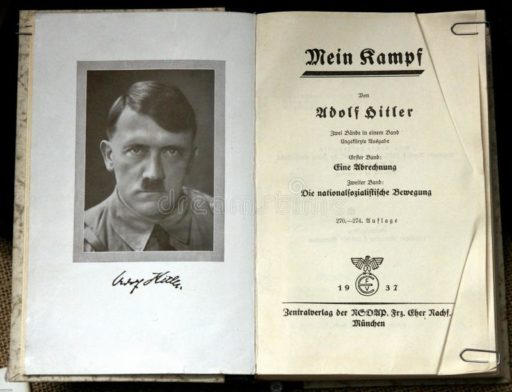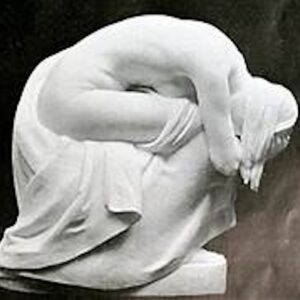“Close Reading the Dictators”… Wait a minute. That title I just came up with contains a contradiction, doesn’t it? Close Reading is a special thing we do just with true literature, right? That is, with the classics? And with great poetry?
That’s what I myself was taught when challenged by my professors at Amherst College in the early Sixties to read poetry attentively rather than impressionistically. I wasn’t to be satisfied with reductive, moralistic paraphrases. I needed to see how weighing words carefully could reveal the beating heart of great writing, which had to do with the expression through ambiguity and paradox of life’s essential complexity. It would be wasted on objects less worthy than the classics, or what I assumed the classics to be.
Well, I discovered later on that the skill of close reading wasn’t tied to an elite literary canon or to a social-class agenda associated with it. Close reading could account not only for the excellence of any piece of writing but also for its rottenness: for the enticements and anxiety-inducements of advertising copy, for instance.
It had never occurred to me, though, that close reading could be applied to the heaps of verbiage produced by dictators—not, at least, until I picked up Daniel Kalder’s recently published The Infernal Library: On Dictators, the Books They Wrote, and Other Catastrophes of Literacy.
The book’s title intrigued me. I was curious how Kalder would treat despotic prose—which bludgeons the reader into submission, pretty exactly mirroring the behavior of the despots’ secret police. I found that Kalder actually applies close reading to these texts, and to fascinating effect.
First, though, a description of the book. The Infernal Library focuses, in often mordantly funny close readings, on the mountainously voluminous writings of Lenin, Stalin, Mussolini, Hitler, and Mao. It uses these readings as templates for dissections of more recent examples of authoritarian verbosity from, say, Kim-Jun-Il, Kaddafi, Khomeini, and their ilk in order to reinforce the bleak fact that these works are uniformly and unrelievedly boring and bad. And Kalder makes clear that the same badness afflicts all despotic language, whether from the right or the left.
In some ways, Kalder’s project must rank at the zenith of all possible self-inflicted punishments. He doesn’t pretend otherwise. As he puts it in his Introduction, giving us here a taste of the black humor that eases the gloom of his engagements with these mind-numbing texts, “[The Infernal Library] is a book about some of the worst books ever written, and so was excruciatingly painful to research.”
But why did Kalder put himself through such pain? And why expect his readers to follow him? Black humor may alleviate the suffering of author and reader, but why even subject ourselves to it in the first place?
The answer to that is found, I believe, in a phrase from Kalder’s subtitle: “Catastrophes of Literacy.” Kalder endures the suffering in order to drive home the point that “literacy” itself is, at best, a mixed blessing.
He clarifies what he means later in his Introduction:
Many people regard books and reading as innately positive, as if compilations of bound paper with ink on them in and of themselves represent a uniquely powerful “medicine for the soul.” However, a moment’s reflection reveals that this is not even slightly true: books and reading can also cause immense harm.… Literacy is a blight as well as a blessing, and dictator books are particularly worth studying in this context as, unlike holy books, which inspire good works as well as evil, their impact is almost entirely negative and so demonstrate, in pure form, just how bad books can be.
“Bad” morally as well as literarily. Kalder’s project is to unmask the profound emptiness of political language that insists on readers’ absolute trust in its claims and obedience to its demands. Kalder’s is a rescue mission: using close reading to break a spell or lift an addiction. He seems to see close reading as the initial step in redeeming literacy itself from the “catastrophe” into which he says despotic writing has plunged it.
Yet Kalder isn’t a doctrinaire close-reader, focusing on texts only. He surrounds his dictatorial examples with plenty of historical context to help us understand what the tyrant wanted his readers to believe unquestioningly, and what actions—usually violent ones—they were to perform in obedient response.
Here, for example, is how Kalder treats Lenin’s prose in a thunderous screed entitled Tasks of Revolutionary Army Contingents. Lenin has been fulminating against certain Bolsheviks’ accommodations with their rivals, the Mensheviks, who had demonstrated willingness to accept the Tsar’s offer to form a bourgeois government. Lenin continues by commanding his followers not merely to reject appeasement but to:
arm themselves as best they can… with rifles, revolvers, bombs, knives, knuckle-dusters, sticks, rags soaked in kerosene for starting fires, ropes or rope ladders, shovels for building barricades, pyroxylin cartridges, barbed wire, nails, etc., etc.
Kalder comments:
Is that the best use of ‘etc.’ in the history of humanity? It might be. There is something extraordinarily casual about it, a disinterested detachment from the reality of physical violence, possible because Lenin had never participated in it himself. He also talks about liberating prisoners, seizing funds, killing members of the regime, and maximizing antigovernment chaos in order to exacerbate the crisis. And although Lenin leaves it to his troops to fill in the precise details, our armchair terrorist is not entirely without imagination himself. Specifically, he suggests that pouring acid on policemen is a good idea….
Close reading like this reveals Kalder’s humor, intellectual agility, modesty, and moral insight, which prevent him from succumbing to a vice shared by all despots: self-righteousness, the habit of dividing the world into simple moral categories of Elect and Damned and placing oneself securely among the former.
Maybe what strengthens these qualities in Kalder are the words with which he ends his book: words of Aleksandr Solzhenitsyn, who, as it happens, suffered much from at least one of the dictators Kalder writes about. Solzhenitsyn is talking about the temptation of wanting to take upon ourselves the separating of the sheep from the goats:
If only it were all so simple! If only there were evil people somewhere insidiously committing evil deeds, and it were necessary only to separate them from the rest of us and destroy them. But the line dividing good and evil cuts through the heart of every human being. And who is willing to destroy a piece of his own heart?
After getting his PhD in English literature, George Dardess taught close reading to his own students until his retirement. Since then he has been ordained a Deacon in the Roman Catholic Church and written several books on Muslim-Christian relations.





